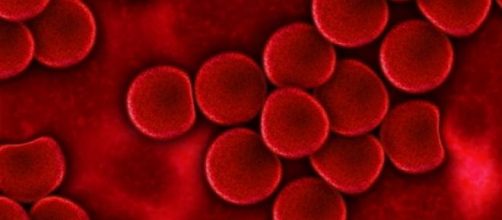To give blood, or not to give blood, that is indeed the big question that many kind hearted gay individuals face when they take the honourable decision to donate blood across Europe and beyond.
In the case of Europe, HIV is transmitted in many ways such as prostitution, drug use, mother-to-child transmission, heterosexual and homosexual sex; due to the availability of antiretroviral treatments, deaths from AIDS have been low in Europe.
The gay community has been marked out for years as the most vulnerable, most likely group to get HIV/AIDS and as the major reason for the spread of disease, albeit gay men are not the biggest victims and they tend to have sex with men, which is curious.
The AIDS website reports that some 35 million people currently live with HIV/AIDS, with the majority of people in low-middle income countries. There are 3.2 million children (under 15), who were infected by their HIV-positive mothers during pregnancy. It makes you wonder about the role of sex education, the local health service in public awareness campaigns, and where millions of donations to help countries develop are going.
The World Health Organisation suggests that some 39 million people have died from the disease since 1981. With 1.5 million people falling victim to AIDS related illness in 2013.
The highest court of the European Union this week argued that a ban on gay men giving blood 'may be justified' in certain cases, in order to protect the receiver of the donation from blood related diseases such as HIV.
That said, are gay people the main cause?
Many people argue that the technological advances have improved detection methods just as much as treatment; that was put clearly by Irish Health Minister and first openly gay politician Leo Varadkar, who said 'decisions should be guided by medical and scientific evidence and best international practice', which is fair and obvious but rarely realised.
So is it really justifiable to square out the gays? I guess not, governments and health services are failing to give suitable educational and public awareness campaigns about safe sex and engaging with the communities that are most vulnerable - users of drugs (solutions: if you simply make drug use illegal - you must enforce it in all seriousness, or you fully legalise drug use and control it!), users of sex workers (if you make it illegal then you put people at risk because you can't monitor it let alone tax it and generate money to cover the costs when it goes wrong!), the heterosexual and homosexual communities who are equally vulnerable, or put it more simply everyone - you need to generate awareness campaigns that remind people of the basics and perhaps indulge in the more interesting open-minded methods of awareness to inform the young of sex (let alone the old, like the sad reality of Korean elderly who sell sex according to BBC News).
This week, the courts looked at the case of Geoffrey Leger who felt he was discriminated on the grounds of sexual orientation.
The European Court of Justice in Luxembourg reviewed the issue of a lifetime ban in France on donations from men who had sex with other men, worked well with the EU law on blood donations and the well respected Charter of Fundamental Rights and they decided that 'in some cases' it was right.
In some cases it is right but that isn't just a 'gay thing', the international community need their health organisations working on the same page just as much as governments across the world looking for multiculturalism, cross-government cooperation; use the money for health, use it for education, not for war.

